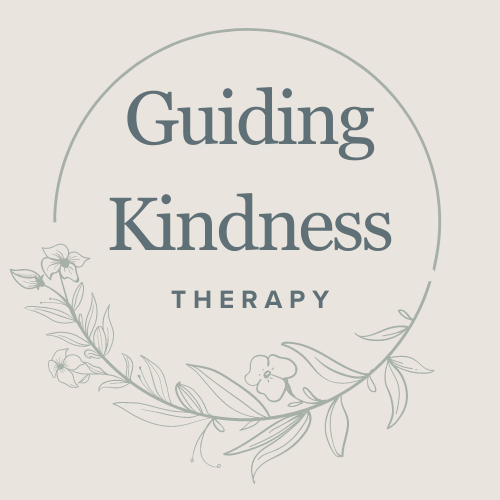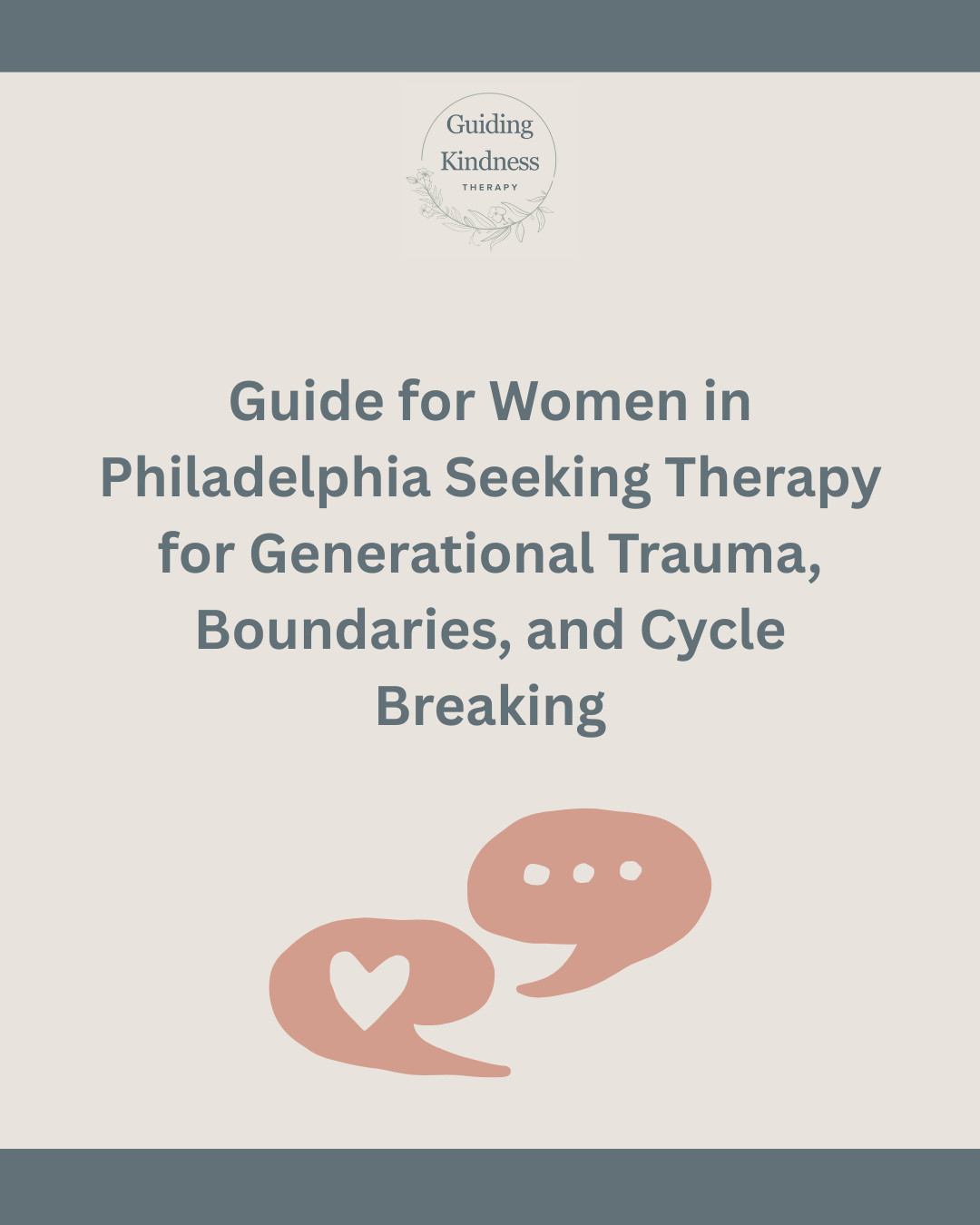Guide for Women in Philadelphia Seeking Therapy for Generational Trauma, Boundaries, and Cycle Breaking
Generational trauma—patterns of pain, beliefs, and behaviors passed down through families—can deeply affect your sense of self, relationships, and financial well-being — aka they can suck.
For many women, especially like the women we speak with here in Philadelphia and throughout Pennsylvania, addressing these patterns means embarking on a journey of cycle breaking: rewriting family narratives, setting boundaries, and mastering money stories, a lot of heavy emotions here!
This guide is designed to help you navigate seeking therapy for these needs, with a focus on practical steps and thoughtful preparation.
Why Focus on Cycle Breaking?
Cycle breaking is about interrupting harmful patterns and creating new paths for yourself and future generations. Some of the most powerful areas of cycle breaking include:
Money Stories: Healing inherited beliefs about money, scarcity, and self-worth.
Setting Boundaries: Establishing healthy limits in relationships with family, friends, and work.
Emotional Wellness: Releasing shame, guilt, and learned helplessness.
Steps to Seek Therapy in Philadelphia & Pennsylvania
1. Identify Your Goals
What specific cycles or patterns do you want to break (e.g., financial habits, relationship boundaries, emotional responses)?
Are you seeking individual, group, or family therapy?
2. Research Therapists with Relevant Expertise
Look for therapists who specialize in generational trauma, family systems, boundary setting, and financial therapy.
Use directories such as Psychology Today, Therapy for Black Girls, or local PA therapy networks.
Check for culturally competent and trauma-informed care.
3. Consider the Logistics
Decide if you prefer in-person sessions (Philadelphia area) or teletherapy (wider PA access).
Check insurance coverage and sliding scale options.
4. Prepare for Consultations
Most therapists offer an initial consultation. Prepare your questions and concerns.
PS. We offer a FREE 15-minute consultation at Guiding Kindness Therapy.
Approaching Therapy for Generational Trauma & Cycle Breaking
Be Open: Healing generational trauma can be emotional and challenging. Openness to self-exploration is key.
Set Intentions: Clarify what you hope to achieve—e.g., breaking money taboos, learning to say no, healing from family patterns.
Prioritize Safety: Ensure your therapist creates a safe, nonjudgmental space. You want to feel comfortable sharing your past, working on your present, and preparing for your future in a safe place.
Thought-Provoking Questions Before Choosing a Therapist
Use these questions for self-reflection and to guide your initial conversations with potential therapists (ahem, you can also consider working with us here at Guiding Kindness Therapy):
What generational patterns do I notice in my family (around money, relationships, or emotions)?
Which cycles do I feel most urgent or motivated to break?
What boundaries have been difficult for me to set or maintain?
What messages did I receive about money, success, or self-worth growing up?
How does my cultural identity influence my experience of generational trauma?
What are my fears or hesitations about therapy?
What does a supportive therapeutic relationship look like to me?
Am I ready to commit time and emotional energy to this process?
How will I know if a therapist is the right fit for my journey?
Questions to Ask Potential Therapists
What is your experience with generational trauma and cycle breaking?
How do you incorporate boundary setting and financial well-being into therapy?
Do you use culturally responsive or trauma-informed approaches?
What is your approach to working with women from diverse backgrounds?
Local & Statewide Resources
Philadelphia Therapists Directory: Search for therapists by specialty, location, or insurance.
PA Psychological Association: Statewide therapist directory.
Community Groups: Look for support groups or workshops focused on women, trauma, and boundaries.
Seeking therapy for generational trauma and cycle breaking is a courageous step and we see you and we are proud of you for taking the time to read this and reflect. By reflecting on your needs and finding the right support, you can transform inherited patterns and build a healthier future for yourself and those who follow.
Remember: You’re not alone in this journey, and change is possible—one step, one boundary, and one new belief at a time!

